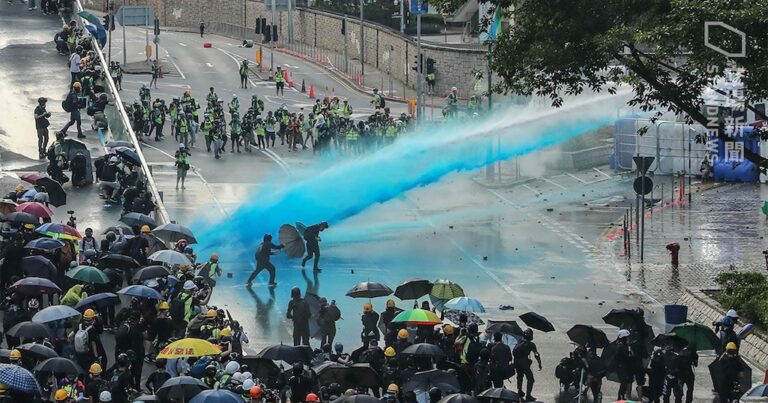
In 2019, the Hong Kong government proposed a law to allow extradition of its residents to Mainland China. It was seen as a threat to the city’s judicial independence and human rights. An estimate of nearly two million people – almost 1/3 of the population – took to the streets to oppose it.
The government’s initial refusal to back down and a heavy-handed police crackdown led to more than six-months’ of unrest and street violence. Police fired 16,000 tear gas rounds, 10,000 rubber bullets and other non-lethal weapons.
People aged below 29 were key participants in the movement, accounting for more than 60% of the tally. They paid a heavy price. More than 10,000 have been arrested; over 2,500 charged and 500 convicted over the protests.
On June 30 2020, the Chinese government suddenly and unilaterally implemented in Hong Kong, a law that effectively outlaws dissent and restricts rights and freedoms.
This was followed by 117 arrests and 128 prosecutions targeting elected lawmakers, district councillors and journalists. Speech crimes and collusion with foreign forces are the common charges. The most-read newspaper was forced to close after its owner was jailed and senior editors arrested.
The government ordered each school to set up a national security committee to censor teaching materials; monitor the behaviour of teachers and students; and report any breaches to police.
National security education and pro-China curricula were introduced for kids as young as six. Teachers have to undergo national security training and 80% of them said they would avoid sensitive topics in class.
The UK government opened door to Hongkongers who were born under the colonial regime and secured British National (Overseas) status. Including their dependants, the government expects 500,000 to come before January 2022 and 1 million before January 2026.
Many of these kids suffer from emotional disturbance or even trauma.
No related posts.
| Cookie | Duration | Description |
|---|---|---|
| cookielawinfo-checkbox-analytics | 11 months | This cookie is set by GDPR Cookie Consent plugin. The cookie is used to store the user consent for the cookies in the category "Analytics". |
| cookielawinfo-checkbox-functional | 11 months | The cookie is set by GDPR cookie consent to record the user consent for the cookies in the category "Functional". |
| cookielawinfo-checkbox-necessary | 11 months | This cookie is set by GDPR Cookie Consent plugin. The cookies is used to store the user consent for the cookies in the category "Necessary". |
| cookielawinfo-checkbox-others | 11 months | This cookie is set by GDPR Cookie Consent plugin. The cookie is used to store the user consent for the cookies in the category "Other. |
| cookielawinfo-checkbox-performance | 11 months | This cookie is set by GDPR Cookie Consent plugin. The cookie is used to store the user consent for the cookies in the category "Performance". |
| viewed_cookie_policy | 11 months | The cookie is set by the GDPR Cookie Consent plugin and is used to store whether or not user has consented to the use of cookies. It does not store any personal data. |